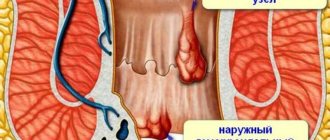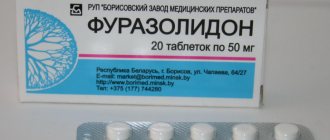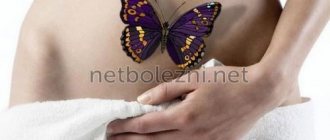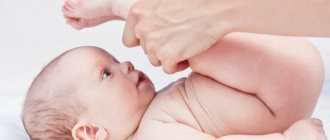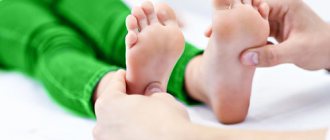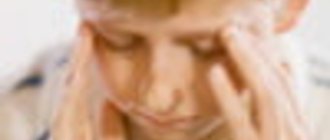Author of the article
Daria Shirochina
Practitioner. She graduated with honors from Vitebsk State Medical University in 2012 with a degree in general medicine. She was awarded a certificate of honor for her achievements in her work.
Ask a Question
Intestinal flu occurs much more often in children than in adults, and is severe with the development of dehydration. But sometimes it is difficult to differentiate between a viral and bacterial infection based only on clinical symptoms. Laboratory diagnostics are not always available, and results may take some time to arrive. A decrease in immune defense leads to the development of complications. In this regard, for rotavirus infection in children, Furazolidone is prescribed, an intestinal antimicrobial drug to suppress bacterial flora.
About rotavirus
The pathogen belongs to the RNA-containing type of pathogens. The disease is caused by several serovars of the virus; those who have recovered from the disease develop type-specific immunity. The microbe is quite adapted to a variety of environmental conditions. It lives and reproduces well at high and low temperatures.
The causative agent of rotavirus infection spreads from a source to susceptible people in two ways - fecal-oral and household contact. There is insufficient data on the likelihood of an airborne mechanism.
Rotavirus infection is suspected when signs of acute gastroenteritis (nausea with vomiting, diarrhea, cramping abdominal pain and rumbling), intoxication syndrome (chills, increased temperature, weakness) and catarrhal symptoms (running nose, coughing, sore throat) appear.
What is rotavirus?
Rotavirus is a virus that infects the tissues of the oropharynx, stomach and intestines. It is also called stomach or intestinal flu. It is very viable and can survive in water and on the surface of vegetables and fruits for up to 8 weeks. Easily transmitted from person to person. This is the reason why rotavirus infections are in second place after classic acute respiratory viral infections.
There are many ways to become infected with rotavirus:
- From person to person, including from asymptomatic carriers;
- With water - while swimming in bodies of water of any size, or when drinking unsafe water;
- With food - most often the cause is poorly washed vegetables and fruits or foods prepared by an infected person;
- In case of contact with the surfaces of objects - if you traveled on public transport and then did not wash/disinfect your hands before eating.
- Immunity to rotavirus is very short-lived, so the likelihood of re-infection is high.
Principles of treatment of rotavirus infection
To date, there is no specific medicine against the causative agent of the disease. For rotavirus gastroenteritis the following is used:
- solutions for oral rehydration (restoring water balance in the body) - Regidron, Gastrolit, Oralit;
- antiviral - Kipferon, Genferon, Arbidol, Tamiflu;
- enterosorbents - Activated carbon, Smecta, Enterosgel, Sorbex;
- antiemetics - Cerucal, Motilium, Metoclopramide;
- medications for diarrhea in case of rotavirus disease are prescribed with caution - Loperamide, Imodium, Uzara;
- probiotics - Lactobacterin, Bifiform, Linex, Acipol;
- enzymes for impaired digestion of food - Festal, Creon, Mezim.
Diet is important for rotavirus infection. Food for babies should be served boiled or baked, in fractional portions, excluding fried, spicy, smoked, fatty and sour foods. Porridges for rotavirus disease are prepared in water, without adding butter. You can eat meat, fish, white bread, vegetables from the oven. It is important not to forget about the drinking regime; fruit drinks, weak tea, jelly, and still water are recommended.
How to treat rotavirus
No specific medications have been developed for rotavirus infection, so there is no point in running to the pharmacy for a magic pill. The most important treatment methods:
- Drink plenty of fluids. It is important to drink a lot of water - pure and mineral (potassium-sodium) - throughout the day. You can use Regidron to reduce the risk of dehydration.
- A gentle diet. In the first couple of days, it is recommended to refuse food, then include in the diet boiled rice and rice “broth”, mashed potatoes with water, crackers and dryers, boiled soft white meat. During treatment, you should exclude all foods that cause fermentation from your diet - berries, vegetables, fruits, dairy products, sweets and baked goods.
- Adsorbent preparations - activated carbon, polysorb, enterosgel - and multienzyme preparations to improve the absorption of nutrients from food.
Under no circumstances should you take antibiotics! They do not have any effect on the virus, but at the same time they destroy the natural intestinal flora, which protects our immunity.
In most cases, a person recovers on his own without medical intervention if he follows the recommendations described above. But with a clear decrease in the body’s immune functions, complications are possible - bacterial damage to the intestines, damage to the nervous system, dehydration.
An increase in temperature to 38 * C or higher, uncontrollable vomiting and diarrhea, a serious loss of strength is a reason to urgently consult a doctor. If the condition does not improve on the third day after the onset of the disease, medical intervention is required. In some cases, the doctor may insist on hospitalization of the patient.
Are antibiotics effective against rotavirus?
Rotavirus infection cannot be treated with antimicrobial agents, since the latter have a detrimental effect only on the bacterial flora. However, prescribing synthetic antibiotics will help prevent the development of another infection and speed up the healing process.
When should you take Furazolidone?
With rotavirus infection, symptoms of gastroenteritis (vomiting, nausea and diarrhea) usually bother a person for several days, then the symptoms gradually decrease. If a child’s diarrhea continues for more than 5–6 days, a bacterial infection should be suspected. In such situations, with rotavirus, the prescription of the synthetic antimicrobial agent Furazolidone is justified. An antibacterial drug from the nitrofuran group is active against gram-positive cocci and gram-negative bacilli, as well as protozoa. Furazolidone is practically not absorbed from the intestinal lumen, and resistance to the drug develops slowly.
The drug is approved for use in children over 1 year of age in an amount of 10 mg/kg body weight - this is a daily dose, which should be divided into three or four doses at equal time intervals.
The duration of use of Furazolidone for rotavirus infection should not exceed 10 days. If there is no positive dynamics of the disease, you should stop taking the medication and consult a doctor.
Furazolidone analogs
If for one reason or another it is not possible to use the medicine, on the recommendation of a doctor it can be replaced with substances similar in mechanism or composition.
Furagin and Furamag are analogues of Furazolidone in terms of their mechanism of action and belong to the nitrofuran antibiotic series. Approved for use for rotavirus infection in children from the age of three at a dose of 25–50 mg three times a day for a week. The drugs are classified as cheap analogues of Furazolidone.
Nifuroxazide is an intestinal antiseptic from the nitrofuran group, often prescribed for rotavirus infection. The drug is available in capsules and suspensions; it can be used by babies who have reached the age of one month. For rotavirus, the daily dose for children up to 2.5 years is 100 mg, and then 200 mg three times a day.
Furadonin is another analogue of Furazolidone from the nitrofurans, which is sometimes prescribed for intestinal infections. The medicine is not the drug of choice for rotavirus, as it is mainly indicated for inflammation of the urinary tract (uroantiseptic). Furadonin can be prescribed to infants from the age of one month at a daily dosage of 5–7 mg/kg body weight, divided into 4 times.
Enterofuril is a close analogue of Furazolidone with the active substance nifuroxazide, available in the form of a suspension (from 1 month of life) and capsules (after reaching 3 years). The drug is successful in treating rotavirus in young children due to the absence of serious adverse reactions.
Fthalazole is a synthetic antibiotic with antidiarrheal properties from the sulfonamide group, an analogue of Furazolidone in action. The drug can be prescribed to children with rotavirus disease from birth.
Indications
Indications for the use of the drug furazolidone, the instructions focus on this, are associated with its antiprotozoal, bactericidal, bacteriostatic and antimicrobial properties. The medicine is effective in the fight against various pathogenic microorganisms, in particular:
- Salmonella.
- Trichomonas.
- Giardia.
To understand what furazolidone helps with, you need to know how the active substance affects harmful microorganisms. It blocks the enzyme systems of harmful bacteria cells. As a result, they are gradually destroyed. During exposure to furazolin, bacterial cells produce fewer toxins.
Most often, furazolidone in adults, the instructions for use indicate this, is prescribed for the treatment of the following diseases:
- Food poisoning.
- Cystitis.
- Dysentery.
- Typhoid fever.
- Pyelonephritis.
- Cholera.
- Giardiasis.
The drug is quickly absorbed into the gastrointestinal tract. After this, it enters all tissues and fluids through the bloodstream, providing systemic treatment.
Precautionary measures
Before starting treatment with Furazolidone, it is important to carefully read the instructions for the medicine and study the recommendations given by your pediatrician.
In case of rotavirus pathology, the correctly selected dose of antibiotic also plays a significant role. In children, it depends on age and body weight.
Furazolidone should not be combined with the antibiotics Chloramphenicol and Ristomycin, which may impair the formation of blood cells. For rotavirus, nitrofuran should not be used together with ephedrine, tetracyclines and aminoglycosides.
Furazolidone analogs
Doctors prescribe sorbents, antiviral drugs and Regidron and advise drinking two liters of water daily.
Patients are prescribed the antimicrobial agent "Furadonin", intended to restore the functioning of the genitourinary system.
"Furagin" is intended for the treatment of the genitourinary system. The antibacterial agent is absorbed into the gastrointestinal tract. Taken for rotavirus.
“Furamag” is an antimicrobial agent that blocks the path of infection along the lymphatic pathways, preventing the spread.
Side effects
Furazolidone is a relatively harmless drug and does not pose a threat to the health of the baby. The antibiotic is not toxic, but is only capable of causing slight changes in the normal state:
- dyspeptic symptoms - loss of appetite, nausea with vomiting, abdominal pain;
- signs of anaphylaxis - skin rash, hives, swelling of the eyes, itching on the body.
To reduce the risk of developing adverse reactions from using Furazolidone, pediatricians advise giving the baby the medicine before meals and then washing it down with a glass of warm boiled water.
In case of pronounced consequences of treatment of rotavirus disease with an antimicrobial substance, the prescription of antiallergic drugs (Fenkarol, Suprastin), B vitamins with mandatory discontinuation of the drug is indicated.
Elimination of stomach flu with Furazolidone
An established diagnosis will help cure the disease. Tests are scheduled.
Whether the drug helps with rotavirus gastroenteritis is determined during treatment under supervision.
Doctors prescribe Furazolidone for rotavirus after a few days of illness, if the diarrhea does not stop.
A side effect is lack of appetite after taking the medicine. With an intestinal infection, vomiting progresses. You need to eat food little by little and often.
Furazolidone, when entering the human body, disrupts the work of certain types of bacteria.
"Furazolidone" affects microbes - they do not release toxins. Infectious microflora is displaced from the body. The drug stimulates leukocytes in the blood to destroy foreign bacteria.
Treatment methods for enterovirus infection
Drug therapy is:
- medications to relieve symptoms (antipyretics, painkillers, etc.).
- vitamins and microelements.
To relieve symptoms, a child may be prescribed medications from different groups:
Painkillers and antipyretics to relieve headaches, muscle pain, and fever. These are “Ibuprofen”, “Paracetamol”, “Ibuklin”, “Nurofen for children”, etc.
Immunoglobulins stimulate the child's immunity. They are administered by injection - intramuscularly or intravenously. The second option is more effective and common.
Important! Antiviral drugs have not been shown to be highly effective in later stages and are not included in the formal treatment plan. They help at a very early stage, when 5-10 hours have passed since infection. But identifying the disease at this stage is almost impossible.
Vitamins (especially vitamin D) and supplements containing essential microelements (magnesium, zinc, potassium, selenium, calcium) help fight the virus well support the child’s body during this difficult period
Important! Antibiotics do not work against enterovirus infection, since they are antibacterial, not antiviral drugs.
The child should be provided with bed rest, drinking plenty of fluids using solutions to restore water and electrolyte balance, and a special gentle diet. The main purpose of the diet is to reduce intoxication and increase immunity, while being gentle on the digestive system. The diet should have enough vitamins, minerals, and protein.
